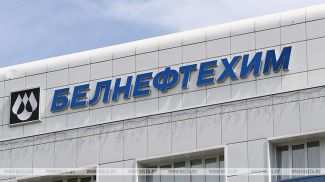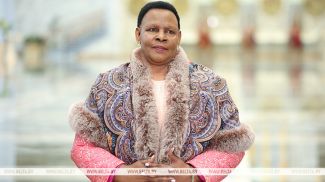MINSK, 20 March (BelTA) - The Eurasian Economic Commission (EEC) plans to draft an agreement on the common gas market in the Eurasian Economic Union (EAEU) by 2022, Chairman of the Board of the Eurasian Economic Commission Mikhail Myasnikovich said in an interview with the Respublika newspaper, BelTA has learned.
Work on the electricity market is synchronized with the efforts to implement the common gas market program. “Given the presidents' instruction to launch the common gas market earlier, we intend to draft an international agreement by 2022. It should formalize the fundamental issues related to the functioning of the common gas market. We expect that all member states will be active in fulfilling these important tasks and will support the efforts of the EEC,” Mikhail Myasnikovich said.
According to him, a similar regulatory framework will be developed for the common markets of oil and petroleum products. "All acts regulating these markets should be adopted and come into force no later than 1 January 2025," the chairman of the EEC Board stressed. One of the most sensitive and key issues in creating the common energy markets is the transportation tariff. “Not all the member states agree with the idea that tariffs should be harmonized. They are currently applied within the framework of national regulations. The presidents of the member states have given instructions to ensure a non-discriminatory approach to setting tariffs on gas transportation services,” Mikhail Myasnikovich said.
There are also a number of unsettled issues related to the trade in electricity, the head of the Board of the Eurasian Economic Commission added. They include the possibility to use national currencies in payments for energy, and also to use e-signatures issued by the national certification centers in the union.
According to Mikhail Myasnikovich, a total of 66 unresolved issues were still on the agenda as of 1 March 2020. Fifteen of them are related to barriers, 14 – to withdrawals, and 37 – to restrictions. “I think everyone understands that these issues will not go away by themselves. Barriers are set by states that wish to protect their markets. I have already voiced the idea proposed by Belarus Prime Minister Sergei Rumas, who said that, perhaps, it makes sense for everyone to remove these barriers simultaneously. Of course, it is for the heads of state to make the final decision. The commission will prepare well-grounded estimates,” Mikhail Myasnikovich said.













